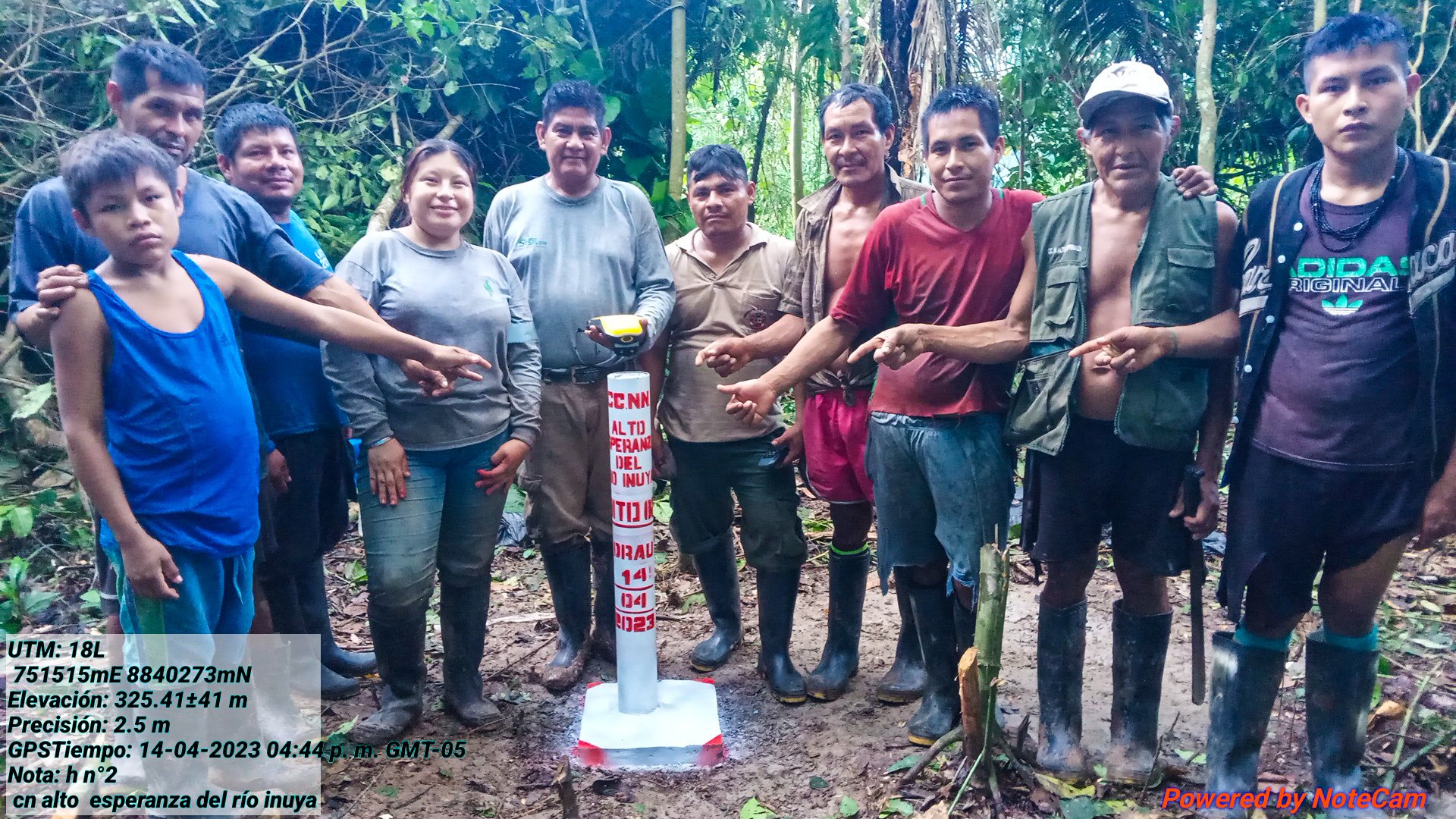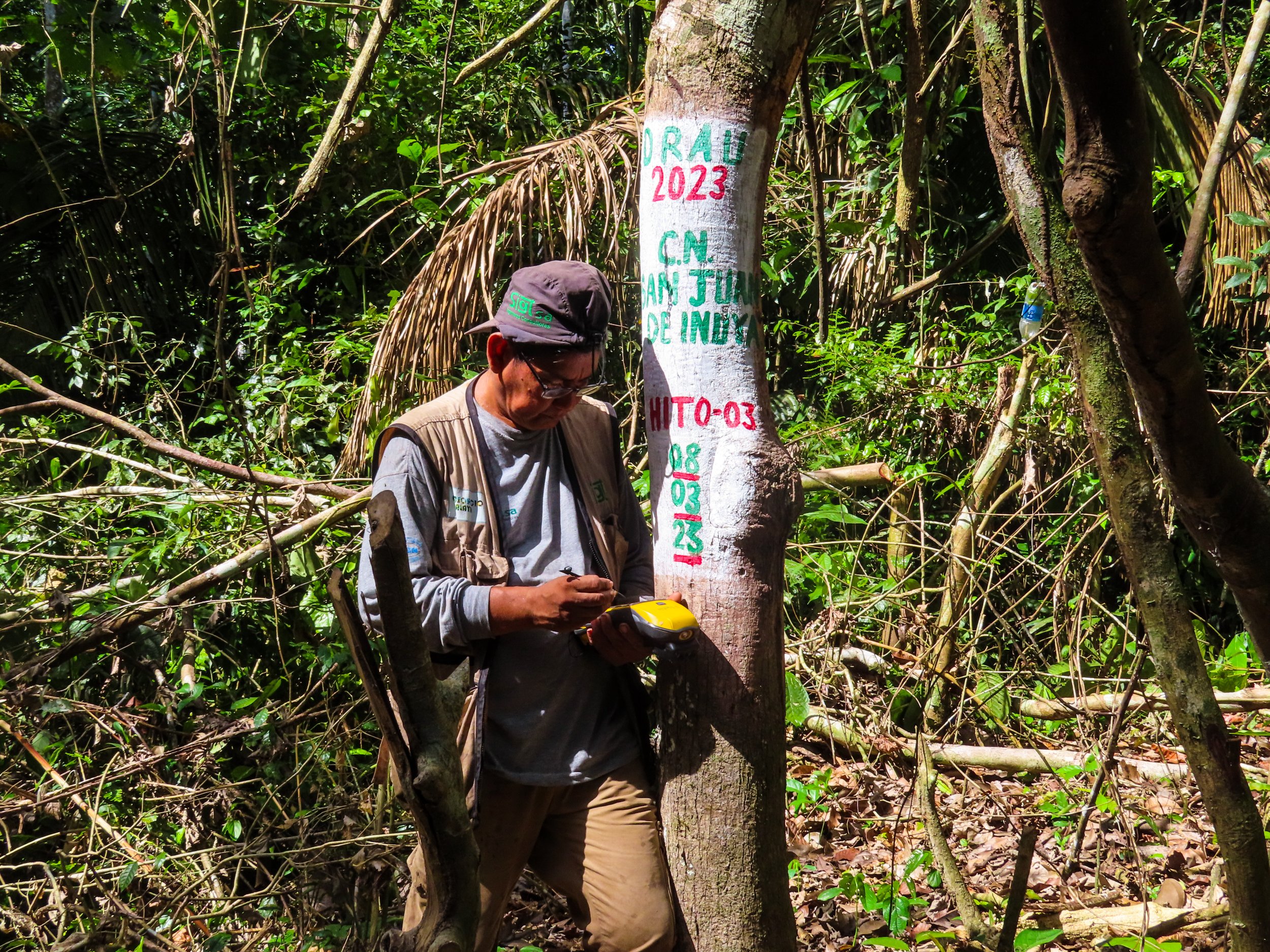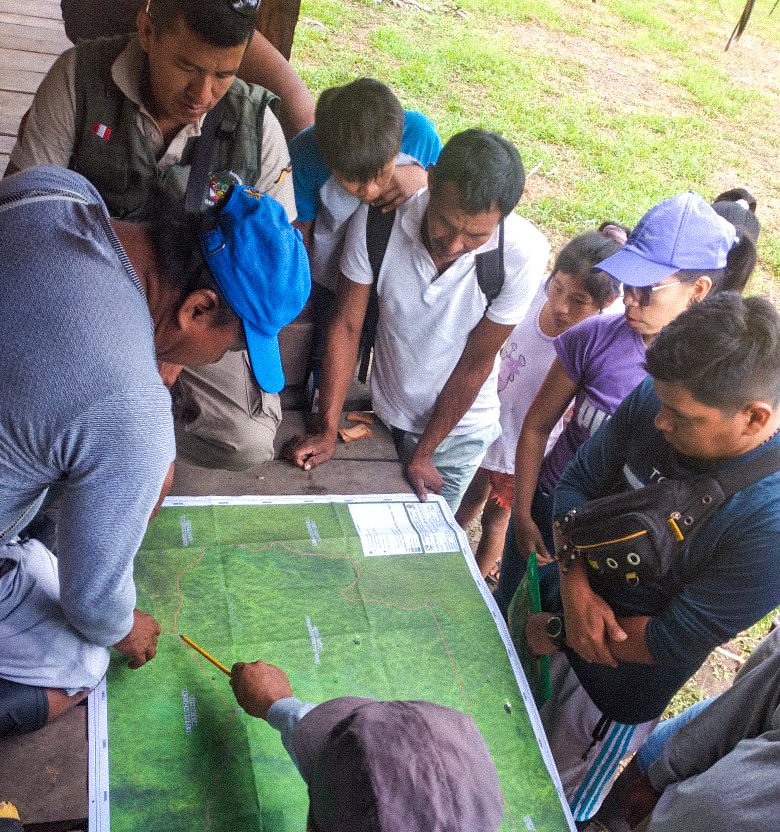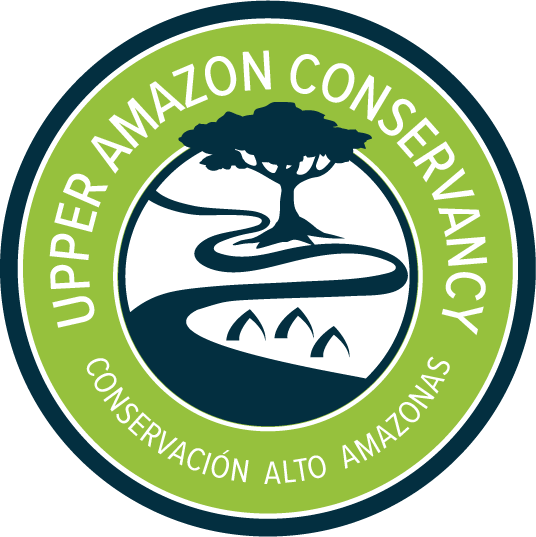Fieldwork Completed to Title Community in Initial Contact
In May, after months of coordinating with various partners including the Ucayali regional government’s titling department and Peru’s Ministry of Culture, UAC led a 40 person team to the headwaters of the remote Inuya River to conduct the necessary fieldwork to advance the titling application of the Alto Esperanza community.
Members of the 40 person titling team pose in front of Alto Esperanza’s new vigilance post.
Alto Esperanza is comprised of a dozen families of the Amahuaca tribe who have lived in these forests for generations, forests that are now being invaded by coca farmers from the central jungle region of Peru. This work is not only critical for recognizing and protecting Alto Esperanza’s territorial rights, but the titling has special significance for all Amazonian tribes as they will become the first indigenous community in initial contact with modern society to receive title to their traditional lands in Peru’s history.
The demarcation fieldwork is a critical part of the titling process. It is needed to mark community boundaries with cement posts and using sensitive GPS devices, gather the geographical data needed to create formal maps of the community to included in the titling application. UAC oversaw the forming of two field brigades totaling 40 profesional from the Ucayali government’s titling department, Ministry of Culture protection agents and SERNANP park guards, two nurses, one lawyer, and various cooks, boat drivers and laborers to help open the trails.





““I hope the government will work quickly to deliver title to Alto Esperanza, so their lands are finally recognized and they can live peacefully and able to defend their territory from deforestation and illegal crops. They also will be able to benefit from various governmental social programs.””
UAC has an agreement with Alto Esperanza to continue advancing the titling proposal and while helping to defend their lands and resources. We want to recognize re:wild, the University of Sussex’s Landscapes of Conservation project, and all the individuals who have donated to UAC and made this work possible.

